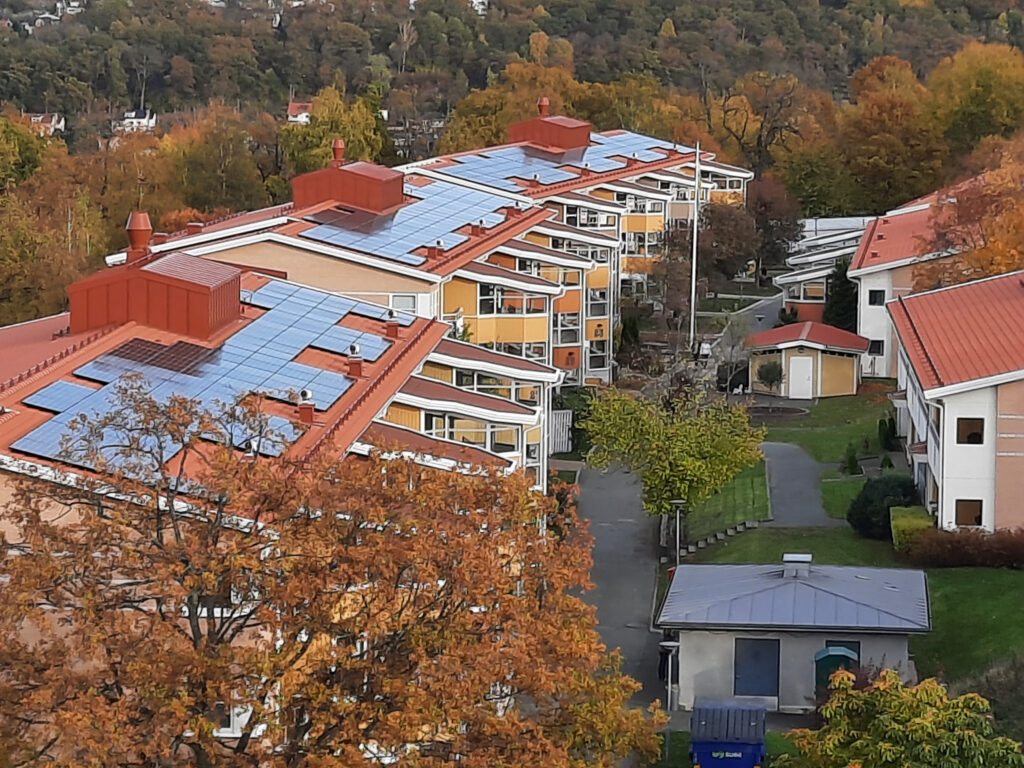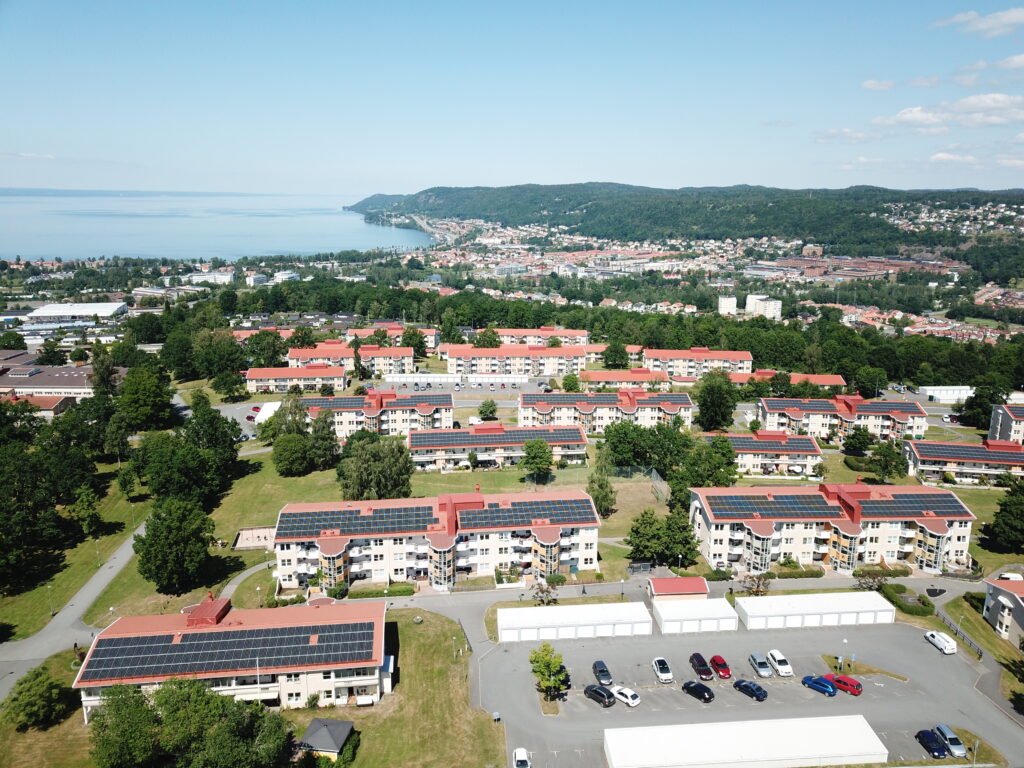Vätterhem works in the Jönköping municipality of Sweden and is strongly committed to sustainable community development. By setting ambitious targets and carrying out a wide range of initiatives to achieve them, Vätterhem has made important progress in reducing energy consumption in housing. The results are a win-win for tenants and the environment.


How much energy did Vätterhem save?
Between 2007 and 2022, Vätterhem achieved considerable savings in energy consumption. Vätterhem reduced property electricity use by 45%. It reduced energy for heating by 31%. In addition, it reduced energy for hot water consumption by 20%. This equates to a 32% reduction in overall energy consumption. As well as representing an important step to protect our environment, the measures also had a positive impact on tenant satisfaction.
How did Vätterhem achieve this?
There is no silver bullet to achieve a dramatic reduction in energy consumption. Vätterhem committed to a long-term strategy and numerous adaptations and improvements.
One of the key elements was the recruitment of specialist colleagues devoted to improving and optimising all of Vätterhem’s processes. This involves questioning and challenging current ways of working to allow for continuous improvement. In 2023, Vätterhem has four colleagues focused specifically on this important task.
Based on the findings of the team, Vätterhem made many practical adaptations and changes , including:
- Optimisation of heating setpoints, ventilation units, and operating hours for lighting;
- Conversion of electric heating to district heating;
- Implementation of a weather station for heat regulation;
- Modernisation of the control systems for heat and ventilation;
- Installation of indoor temperature sensors for each apartment and the implementation of individual measurement and billing systems for hot water consumption for each apartment;
- Use of LED lighting and energy-saving bulbs;
- Replacement of elevator motors to more energy efficient motors;
- Installation of solar panel systems: in 2022, these panels produced 2.400 Mwh electricity.
This Best Practice was presented at our Leadership Summit 2023.
Find out more about reducing energy consumption in housing
To find out more on this initiative, please contact the organisation’s Coordinator through the Members Only Zone. You can also find a presentation of from our Leadership Summit here.
